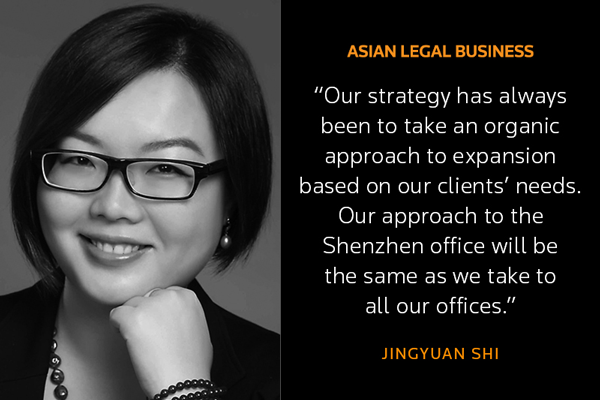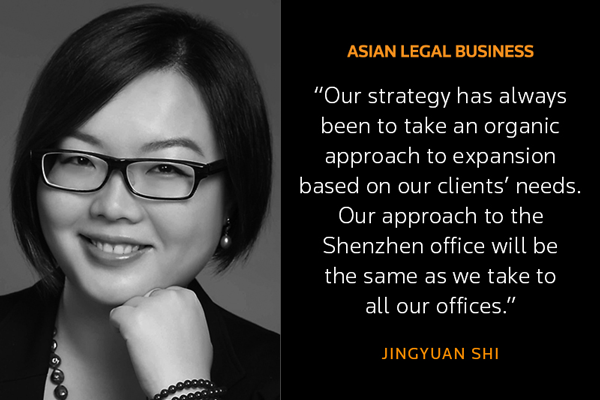
Simmons & Simmons recently opened an office in Shenzhen. The firm has revealed few details about the office – how many lawyers it will have, or whether it will be more than just a representative branch. The office will be led by Jingyuan Shi, who has offered some comments to ALB.
Asian Legal Business: What was the motivation behind opening the Shenzhen office? What specific function will it perform that the Beijing, Shanghai and Hong Kong offices are unable to?
Jingyuan Shi: Our Shenzhen office has a TMT focus. China is currently the world’s second most important TMT market after the U.S. Following the Greater Bay Area plan announced by the Chinese government, Shenzhen, as a rapidly growing force in the technology industry, plays a pivotal role in the continued growth of that market.
The decision to open an office in Shenzhen is a response to our clients’ needs. Whilst those needs have been serviced from our other offices, the demand is such that we believe a dedicated office is the best way for us to deliver the service our clients expect.
ALB: What is the broader strategy for the Shenzhen office? Do you expect it to be more like a representative office, or are you planning to have a significant team of lawyers on the ground?
JS: Our strategy has always been to take an organic approach to expansion based on our clients’ needs. Our approach to the Shenzhen office will be the same as we take to all our offices. We will constantly monitor opportunities for expansion or otherwise, based on our strength in sectors and our clients’ demand for the services we can provide in those sectors.
ALB: Simmons is probably the only UK firm with a presence in Shenzhen at this moment. Why do you think it has not been as alluring till date for your competitors, and in what way is your approach different?
JS: Of Shenzhen’s four pillar industries, advanced technology is probably seen as the most important. Our focus as a firm on the TMT sector enables us to act for some of the most exciting companies in the TMT market and on their most challenging and complex issues and transactions. For each area of law, we can offer lawyers experienced in the legal and commercial issues facing clients in that area. Our approach is always to focus on our strengths and not on the approach of our competitors.
ALB: Have you seen any impact on legal work in China from the ongoing trade war and China’s earlier restrictions on outbound deal flow? Do you expect it to affect your new office in Shenzhen?
JS: The trade war and the additional regulation concerning outbound are factors affecting our clients’ business. So far, that has not had an impact on their demand for our advice.
To contact the editorial team, please email ALBEditor@thomsonreuters.com.



